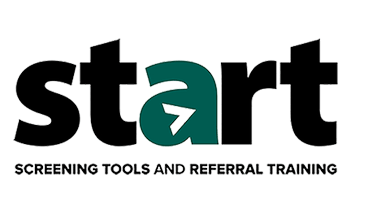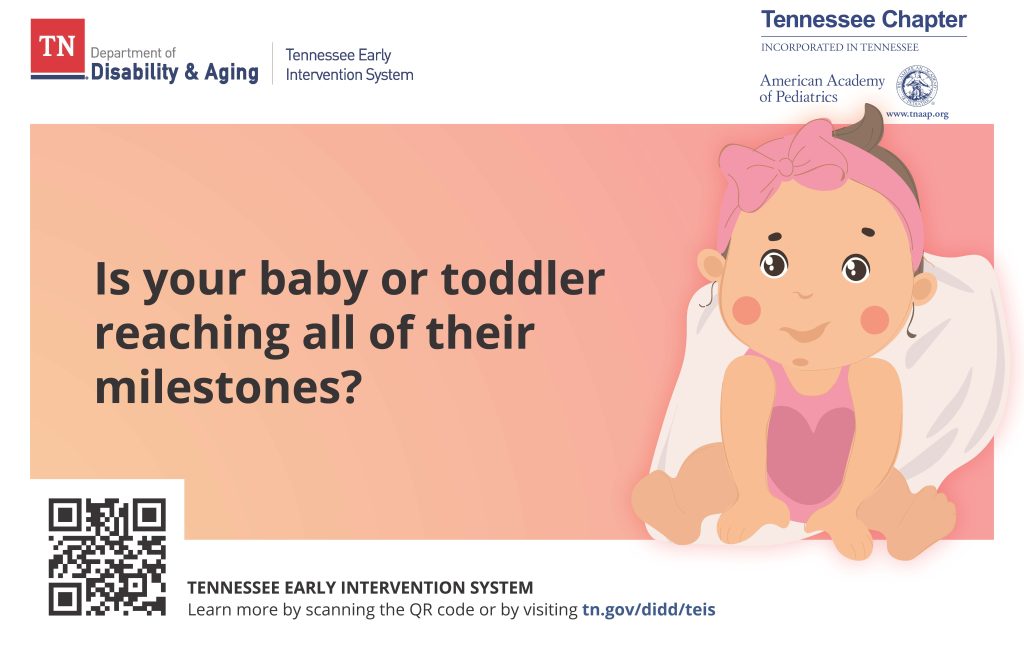Screening Tools and Referral Training

The new TEIS (Tennessee Early Intervention System) Extended option is now available.
What is the TEIS Extended Option?
The TEIS Extended Option allows current families to continue receiving TEIS services beyond age 3 if the child is determined eligible for special education services in their local school district. This extension will give families an additional choice to consider as they help their child develop and prepare for school. If a child is eligible for school district special education services, a family will have the following choices:
• TEIS Extended Option
• Special education services in the local school district
• Choose to end all services
If a family chooses the TEIS Extended Option, they can continue with TEIS services up to the start of the school year following the child’s 5th birthday. These services would continue to be provided through an Individualized Family Service Plan (IFSP). Families can choose to transition to the school district at any time during the TEIS Extended Option. Once a child transitions to special education services in the school, they cannot return to TEIS services.
Who is eligible?
To be eligible for the TEIS Extended Option, a child must meet the following criteria:
• Have a current Individualized Family Service Plan through TEIS (IFSP)
• Be determined eligible for school district special education services by the local education agency (LEA)
Click here for an illustration of TEIS pathways.

The Tennessee Chapter of the American Academy of Pediatrics (TNAAP) can be a tremendous resource to you in implementing the use of formal screening tools in your practice. TNAAP has a free training program for practices and medical schools called Screening Tools And Referral Training (START).
START is an educational program developed by TNAAP to help pediatric care providers – including pediatricians, family physicians, physician assistants, nurse practitioners, nurses, and others – learn skills and strategies to implement routine developmental screening using standardized screening tools as part of their health care procedures.
This training is also appropriate for residents and students in the medical field who plan to become primary care providers. It was adapted with permission from the Illinois Chapter of the American Academy of Pediatrics (ICAAP). The program is in collaboration with Tennessee’s Early Intervention System (TEIS).
TNAAP offers START training throughout the state to educate physicians, allied health care providers, and office staff about developmental and behavioral screening tools, referral procedures, and office workflow, and coding for payment for screening that can be easily incorporated into a practice routine.
The START training has been updated in 2023 to incorporate the latest recommendations from the American Academy of Pediatrics’ and Bright Futures’ guidelines for developmental surveillance and screening as well as behavioral and mental health screening, including recommendations for family-center behavioral and social-emotional screening across childhood. START includes a variety of resources to help make health and early childhood professionals’ work in supporting families easier.
To learn more about the START program, download this overview.
START Contact Information
Susan Rollyson, M.Ed.
Program Manager
Phone: 615-278-0548
Fax: 615-383-7170
Email: susan.rollyson@tnaap.org
Toni Whitaker, MD, FAAP
Medical Director, START Program
Developmental Behavioral Pediatrician
Jason Yaun, MD, FAAP
Training Director, START Program
Pediatrician
Learning Objectives for START
The purpose of the START program is threefold:
- To increase early identification and referral of children with developmental delays or behavioral problems using standardized screening tools.
- To better understand referral resources in your community.
- To learn about better documentation of services, coding and payment.
Surveillance & Screening
Most pediatric health professionals practice developmental surveillance. Surveillance is a flexible, ongoing process where knowledgeable professionals perform skilled observations of children during the health care visit.
Developmental screening, on the other hand, is a brief procedure, using a standardized validated tool, available either commercially or in the public domain, to determine whether a child requires further and more comprehensive evaluation. Developmental screening enhances surveillance. Screening may be a part of routine well child visit or it may be used during acute care visits in response to a specific concern about a child. The AAP recommends routine surveillance and using standardized developmental and behavioral screening at least 3 specific times: the 9, 18 and 24/30 month visits.
Evidence
In an updated 2006 and 2007 policy statement and the most recently updated 2020 policy statement, the AAP recommends routine surveillance and standardized developmental and behavioral screening. The statements provide strategy to support health care professionals in developing a pattern and practice for addressing developmental concerns in young children. It recommends that validated general developmental screening tools be administered regularly at the 9-, 18-, and 30-month health supervision visits and that screens for autism spectrum disorder be administered at the 18- and 24-month visits. In addition, developmental surveillance (monitoring) should be incorporated at every well-child preventive care visit and any concerns raised during surveillance should be promptly addressed.
Resources
- MCHAT -R/F training video
- Tennessee disability pathfinder
- Tennessee Regional Contacts for Autism Resources
- Autism Spectrum Disorders Online Resources
- Regional Autism Societies
- Family Voices of Tennessee
- Tennessee Voices for Children
- Tennessee Department of Intellectual and Development Disabilities
- CDC Learn the Signs Act Early Website
- Wrightslaw
Tennessee’s Early Intervention System (TEIS)
The START program is a collaboration with Tennessee’s Early Intervention System (TEIS) funded by the Tennessee Department of Disability and Aging. Click here for video about the program and learn about the program’s 2022 expansion in this webinar.

Tennessee Early Intervention System (TEIS) is a statewide program sponsored by the Tennessee Department of Disability and Aging. It is mandated under the Individuals with Disabilities Education Act (IDEA), Part C, to provide early intervention services to children eligible under this act. TEIS is a network of nine district offices that provide home-based, early intervention services to young children with special needs (birth to three years) and their families.

